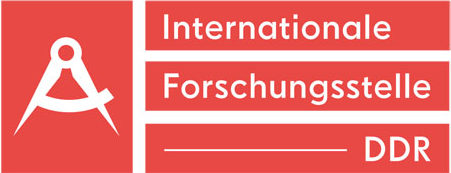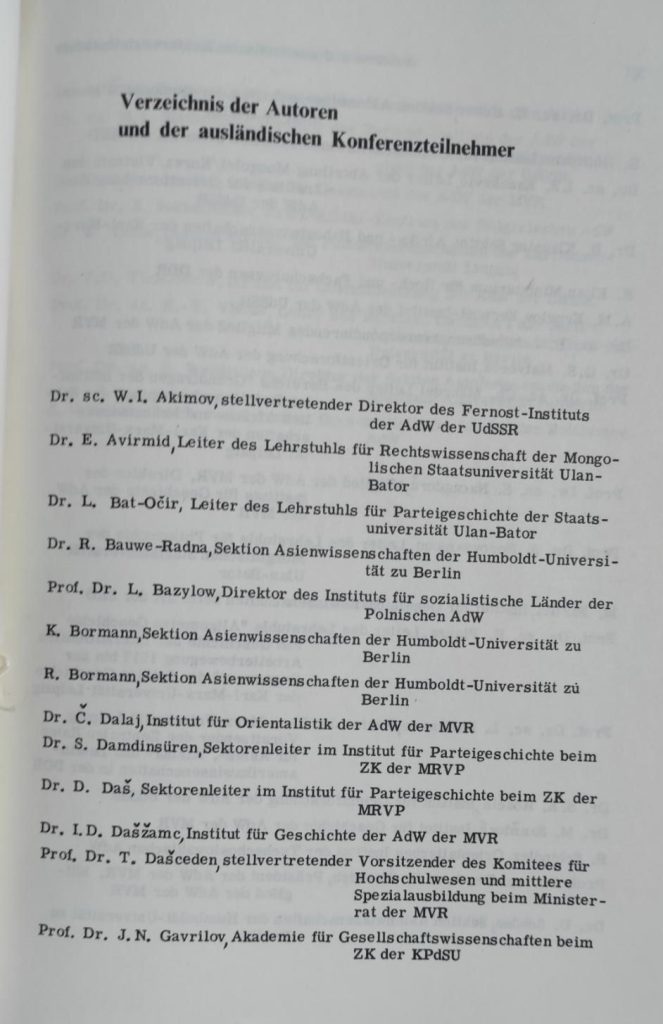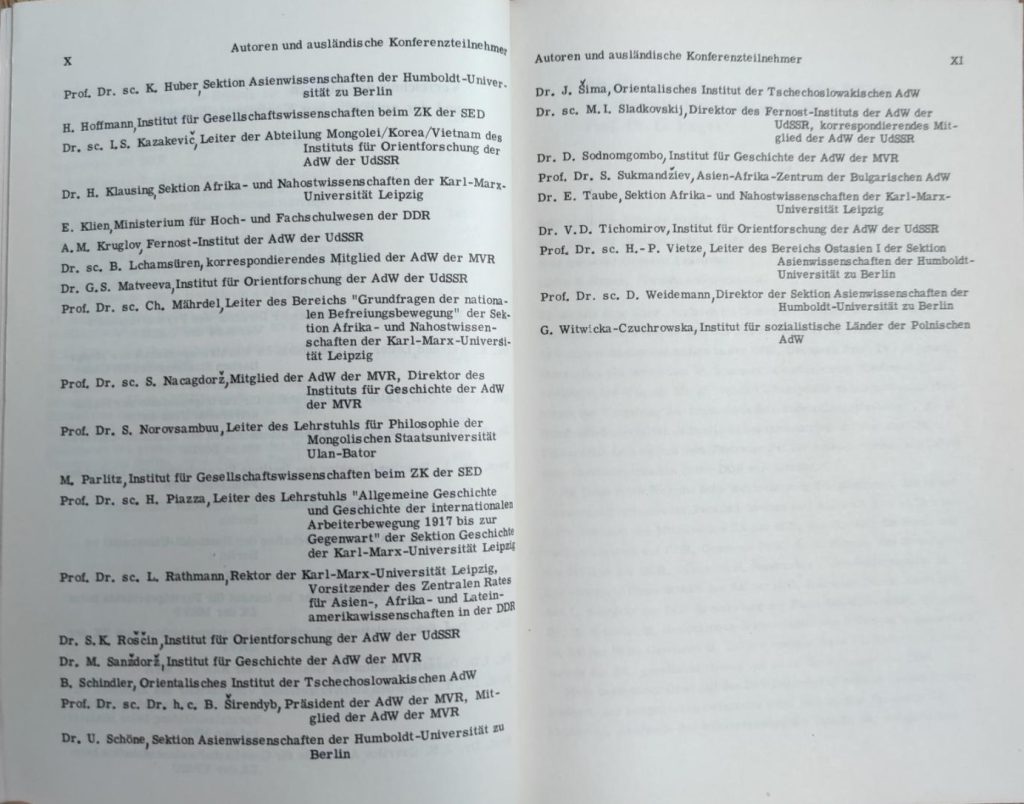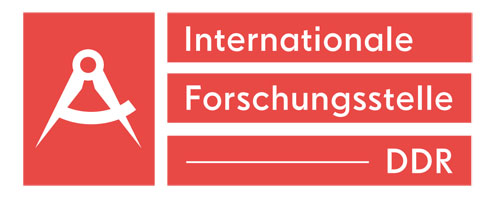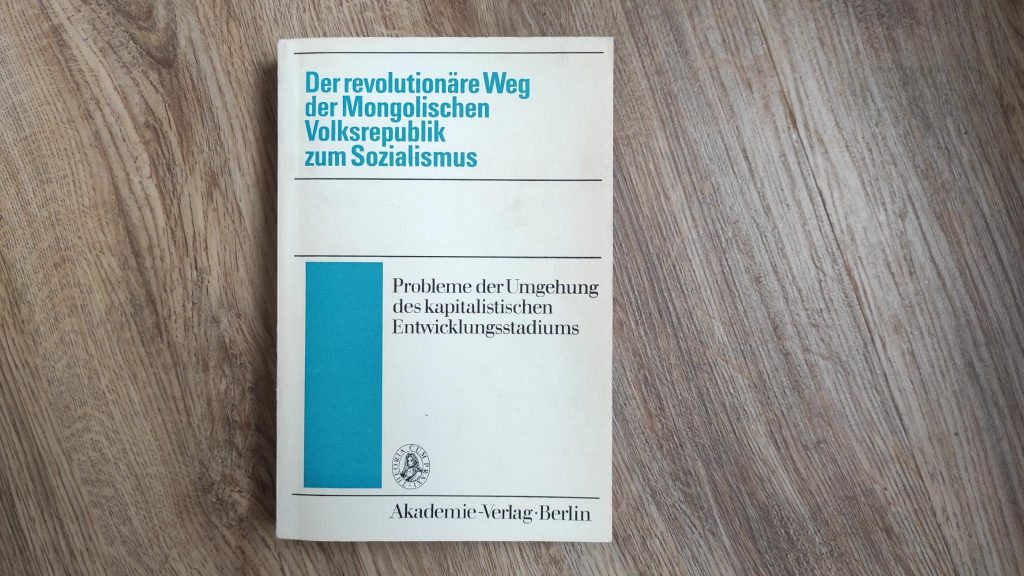
In 1975, scholars and cadres from seven socialist states convened in Berlin for a conference on Mongolia’s path from feudalism to socialism and how this historical experience could inform non-capitalist development strategies throughout Africa and Asia.
The conference – entitled “The Revolutionary Path of the Mongolian People’s Republic to Socialism: Problems of circumventing the capitalist stage of development” – was jointly hosted by Berlin’s Humboldt University, Leipzig’s Karl Marx University, and the DDR’s Central Council for Asian, African, and Latin American Sciences. Over 40 participants came from the USSR, the Mongolian PR, the PR Bulgaria, the DR Vietnam, the PR Poland, the ČSSR, and the DDR.
In the first keynote address, the president of Mongolia’s Academy of the Sciences outlined the trajectory and central problems of non-capitalist development in the Mongolian context:
Prior to the “anti-imperialist, anti-feudal popular revolution” in 1921, Mongolia’s socioeconomic relations had been characterized by feudalism and serfdom. To advance towards socialism out of this state required two stages: a democratic stage (1921–1940) and a socialist stage (1940–1961). The democratic stage was anti-imperialist, anti-feudal, and anti-capitalist in character: it entailed the nationalization of the land, the development of private livestock farming along non-capitalist lines, and the construction of state- and cooperative-owned industry.
By the 1940s, the class of the feudal lords had been overcome and foreign capital had been driven out of the country. The total production of the domestic industry increased 22-fold from 1933 to 1940. By 1961, the Mongolian PR had become an “Agricultural industrial state”.
While many of the insights gained from Mongolia’s practical experience could be very informative for revolutionary govts in the newly liberated states across Africa and Asia, the conference participants highlighted several key differences between Mongolia and these countries:
- Mongolia had not been integrated into the capitalist world market to the same extent that many former colonies in Asia and particularly Africa were. This relation of dependency made the challenge of driving out foreign capital far more difficult.
- Mongolia shared a border with the USSR. The latter provided significant economic, political, & military support to Mongolia. The former colonies embarking on non-capitalist paths of development were often isolated & surrounded by foes (e.g., Mali, Congo, Tanzania).
- The 1921 Mongolian popular revolution had been led by a party with very close ties to the international communist movement. They started with a firm theoretical grounding in scientific socialism and appreciated the law-governed nature of societal change. This was something that most of the pluralist national liberation movements did not start with, although many began to adopt scientific socialism as the differentiation process within the national liberation struggle intensified (e.g., in PR Congo, Angola, Mozambique, etc.).
This conference was just a brief episode in a decades-long debate in the socialist world and former colonies around the question of non-capitalist development. Through the “Friendship!” research platform, we have begun to investigate these discussions and their enduring relevance. Later this year, we will publish an article on the socialist-oriented PR Congo and its struggle against imperialist dependency.
